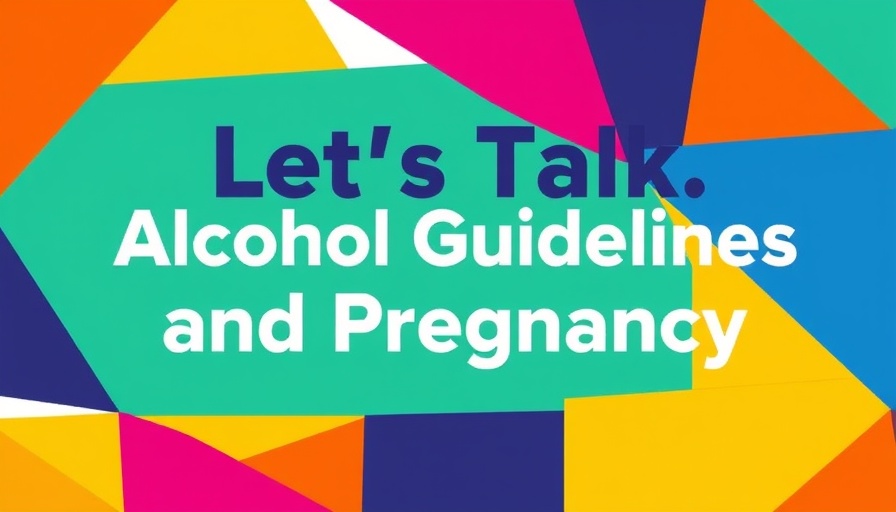
The Importance of Alcohol Guidelines for Pregnant Women
Every healthcare professional understands the nuances of patient care, particularly when discussing alcohol consumption and pregnancy. The CDC underscores that there is no safe amount or type of alcohol use during pregnancy. This point is crucial for healthcare providers to emphasize when counseling women who are pregnant or considering pregnancy. Alarmingly, research shows that 1 in 3 U.S. adults engage in drinking behaviors that may jeopardize their health, with significant implications for expectant mothers.
In 'Waiting Room: Let’s Talk About What Everyone Should Know About Alcohol Guidelines and Pregnancy,' the discussion dives into alcohol guidelines and the implications for maternal health, prompting us to explore these important issues further.
Misconceptions About Alcohol During Pregnancy
Many individuals hold the misconception that occasional drinking in the last trimester is harmless or that certain types of alcohol, such as wine, are safer than others. However, a five-ounce glass of wine contains the same alcohol as a shot of liquor. Such misconceptions can lead to harm and foster a climate of misunderstanding about what truly constitutes safe drinking behavior during pregnancy.
Consequences of Prenatal Alcohol Exposure
Fetal Alcohol Spectrum Disorders (FASD) is a serious concern that arises from alcohol consumption during pregnant. Impacting 1-5% of U.S. schoolchildren, FASD results in a spectrum of cognitive and behavioral issues. From troubles in school to long-term mental health challenges, the fallout from alcohol consumption is severe and lifelong. Understanding these consequences is essential for healthcare efforts aimed at preventing prenatal alcohol exposure.
Supporting Healthy Choices: The Role of Healthcare Professionals
Healthcare providers are in a unique position to guide women towards healthier choices throughout their pregnancy. Practitioners should initiate conversations about alcohol use right from the first appointment. By asking patients about their alcohol consumption, discussing potential risks, and providing resources for support, healthcare professionals can foster an environment of health and understanding.
Next Steps: What Can Be Done
To effectively combat the dangers of alcohol during pregnancy, healthcare professionals must advocate for abstinence from alcohol for all expectant mothers. This involves not only providing comprehensive education but also directing individuals to appropriate resources such as addiction specialists or support groups like Alcoholics Anonymous. By guiding pregnant women towards these supportive environments, healthcare practitioners can help significantly reduce risks associated with prenatal alcohol exposure.
In summary, professionals should recognize the profound impact of alcohol consumption on pregnancy and the associated risks of FASD. Emphasizing the message that there is no safe level of alcohol is vital in supporting pregnant women and advocating for healthier communities.
 Add Row
Add Row  Add
Add 


 Add Row
Add Row  Add
Add 

Write A Comment